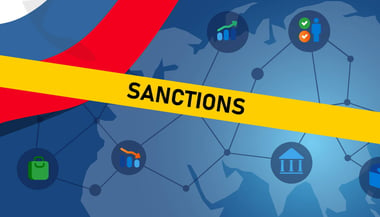Specially Designated Nationals and Blocked Persons List (SDN)
The Office of Foreign Assets Control (OFAC) creates the Specially Designated Nationals and Blocked Persons list – also known as the OFAC SDN list – in order to carry out its responsibilities.
The OFAC SDN list is a critical tool in the fight against money laundering and terrorist financing in the US and around the world. It is part of the US Treasury's Selective Sanctions policy, which penalises specific individuals and organisations involved in criminal activities rather than the more comprehensive approach of sanctioning entire nations.
The names of individuals, entities, and organisations suspected of involvement in a variety of criminal activities are added to the Specially Designated Nationals and Blocked Persons List on a regular basis.
US Persons (including US citizens and permanent resident aliens regardless of location, US incorporated entities and their foreign branches, and in some cases their subsidiaries) are prohibited from doing business with anyone on the OFAC SDN list – and should check the list to ensure they are not in violation of the law if there is any doubt.
Businesses should conduct background checks before establishing a relationship with a person or entity or conducting transactions with them, as well as on a regular basis throughout the relationship.
What You Need to Know
To use the Specially Designated Nationals and Blocked Persons List, you must first understand how it works and how to apply it when dealing with foreign business interests.
Who Must Comply with Specially Designated Nationals and Blocked Persons List?
OFAC sanctions must be followed by all US individuals, with the term "US individuals" defined as follows:
- They are all US citizens and permanent resident aliens, regardless of where they are located
- They are all persons and entities in the US, regardless of their nationality
- They are all US-incorporated groups or any other organisation, as well as their foreign branches
Along with US persons, there may be certain instances where the OFAC regulations may also apply to foreign subsidiaries that are owned/controlled by US entities or to foreign persons in possession of US-originated goods.
For these purposes, an entity is considered owned or controlled by a US person if they:
- Hold 50% or more equity interest by vote or value in the entity
- Have a majority of seats on the board of directors of the entity
- Have control of the actions, policies, or personnel decisions of the entity
Who Is On The SDN List?
The SDN List contains the names of individuals, corporations, and vessels with whom US citizens are prohibited from doing business or transacting. SDNs are appointed for a variety of purposes, including:
- Being pursuant to a country-specific sanctions programme (e.g., a senior government official of a country against which the US has imposed sanctions)
- Engaging in activities that are specifically prohibited (e.g., terrorism, drug-trafficking, or cyber-related activities)
- On the basis of their ownership or control structure (e.g., a group owned/controlled by an SDN)
- On the basis of activities for, or on behalf of, a targeted country, group, entity, or individual (e.g., a party deemed to have supported a prohibited government’s commission of human rights violations)
How frequently is the list of Blocked Persons and Specially Designated Nationals updated?
The OFAC SDN list is updated on a regular basis, notwithstanding the lack of a timeline. The list is updated to reflect the status of ongoing and upcoming OFAC investigations, and users may search through changes dating back to 1994.
Because of the unpredictability and frequent changes to the SDN list, organisations should seek for a screening provider that keeps up to date, relevant, and reliable data.
OFAC may remove people from the SDN list based on the findings of investigations or continuous compliance with the law. Individuals and organisations on the list may also petition OFAC for removal. In these cases, OFAC will undertake a thorough examination and post any modifications to its recent actions' website. On archived versions of the list, you may see all previous revisions.
How to Search the Sanctions List?
OFAC provides an SDN list search engine. Users can narrow their results by entering specific parameters, such as searching by country or specific sanction.
Names returned by a search are accompanied by codes that indicate why a person or organisation has been added to the list: "BPI-PA" indicates that entry has been "blocked pending investigation" under the Patriot Act, for example.
It’s strongly recommended that the individuals pay attention to the programme codes associated with each returned record. These programme codes detect how a true hit on a returned value needs to be treated.
The Sanctions List Search tool makes use of an appropriate string matching to find possible matches between word or character strings as entered into Sanctions List OFAC SDN Search, alongside any name or name component as it appears on the SDN List and/or the various other sanctions lists. The Sanctions List Search has a slider-bar that can be used to set a threshold (a confidence rating) in order to bring more accuracy in a potential match, which is a result of a user’s search.
It can detect certain misspellings or other incorrectly entered text, and will return near or proximate matches, based on the confidence rating set by the user via the slider-bar. The Office of Foreign Assets Control does not provide recommendations with regard to the appropriateness of any specific confidence rating. The Search List tool is a tool offered to assist users in utilising the SDN List and/or the various other sanctions lists; however, use of the Sanctions List Search is not a substitute for undertaking appropriate due diligence.
What Are Best Practices for Complying with US Sanctions?
While all US citizens are expected to comply with the sanctions' responsibilities, OFAC does not force financial institutions to create any specific compliance programme. Institutes are expected to approach sanctions compliance in a risk-based manner. This implies that an acceptable compliance programme will be determined by the size, kind, and frequency of a company's overseas transactions.
The compliance policy may be seen by institutes and individuals on the official website of OFAC.
A good compliance programme will have:
- Tailoring – The sanctions compliance programme needs to be based on self-assessment and appropriately tailored to address an institution’s specific sanctions risk areas
- Influence from management – Senior management should tell employees about the financial institution's commitment to complying with all applicable regulations. They should also be robust in their opposition to any unlawful acts carried out by any employee, even those in upper management.
- Policies and Procedures – All financial institutions must put in place documented policies and procedures to ensure that its staff are aware of the applicable regulations, as well as the financial institution's approach to complying with them.
- Training – All financial institutions must put in place documented policies and procedures to ensure that its staff are aware of the applicable regulations, as well as the financial institution's approach to complying with them.
- Screening – Financial institutions should screen appropriate US restricted parties lists for their overseas business partners, which include clients, agents, brokers, and other third-party persons. The lists that should be screened may vary depending on the breadth and nature of the institute's overseas activity. Although, it should include the SDN List at a minimum.
- Transaction Due Diligence – Before entering into any international business relationship, a financial institution should conduct the appropriate due diligence on the parties involved. This includes diligence on the parties’ ownership and control. The financial institution’s compliance and legal departments should be invested to a necessary extent, to review the proposed transactions and ensure compliance with the US sanctions legislature.
- Compliance Function – OFAC expects financial institutes to provide enough resources to their compliance functions. This mostly consists of hiring an experienced compliance officer and providing him or her with the appropriate compensation and promotion opportunities. Furthermore, their function itself should be independent and they should employ an appropriate reporting structure. In various cases, this could mean that the compliance function will report directly to the legal department.
- Auditing/Monitoring of Compliance Programmes – As a financial institution's worldwide presence expands over time, it should examine its compliance programme on a regular basis to ensure that it is appropriate and reacts to the institute's real sanctions risk profile.
- Record-keeping – All of the records regarding a financial institution’s compliance programme, policies and procedures, training, screening of prohibited parties, transaction history and partner due diligence, responses to reported violations, and so forth should be maintained/recorded for a minimum of 5 years in a format that can be provided to OFAC, at their time of the request
What Should You Do If Your Search Produces a Match?
If you find a name match on the SDN list that causes concern, you should first investigate the outcome. Check to see if the score suggests an exact or merely probable match — you may need to utilise other information, such as location, to rule out a false positive. A screening provider that adds context to your search results can help you resolve possible matches faster, increasing workflow efficiency.
Anti-Financial Crime Compliance with Tookitaki?
.png?width=250&height=104&name=PNG%20-%20Montserrat%20LOGO%20-%20a%20Thunes%20company%20(White).png)
-1.png?width=200&height=83&name=PNG%20-%20Montserrat%20LOGO%20-%20a%20Thunes%20company%20(White)-1.png)



